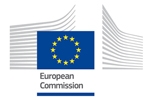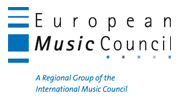Arts Education
Below is a collection of documents that provide concrete ideas and recommendations that can be implemented in all areas of Arts Education.
This list is by no means exhaustive and will be updated regularly.
Implementing of the European Agenda for Culture (2013)

The implementing tools of the European Agenda for Culture in a globalizing world are intended to help bring together the various actors at EU and member state level to take action in pursuit of shared objectives and to address cultural challenges of European dimension. This evaluation comes in a period of reflection and future planning, such as those on Creative Europe and the preparation of the Culture Work Plan which will succeed to the current one.
Seoul Agenda: Goals for the Development of Arts Education (2010)
The Seoul Agenda: Goals for the Development of Arts Education is a major outcome of UNESCO’s Second World Conference on Arts Education held in Seoul, Korea, on 25 – 28 May 2010. Convened at the initiative of UNESCO the Conference gathered more than 650 officials and experts in arts education from 95 countries
OMC Working Group on developing synergies with education (2009)

This paper shows the results of a working group of the member states in the frame of the Open method of coordination - OMC working group.
Culture Counts: A European contribution to the Seoul conference (2009)
This document details the outcomes of a symposium that was organised by the German UNESCO Commission in 2009.
Key competences for lifelong learning (2006)

Recommendations of the European Parliament and of the Council. The European framework for key competences for lifelong learning, identifies and defines the key abilities and knowledge that everyone needs in order to achieve employment, personal fulfilment, social inclusion and active citizenship in today's rapidly-changing world.
The framework includes competences in ‘traditional’ subjects, but it also covers other skills, such as learning to learn, social and civic competence, initiative-taking, entrepreneurship, cultural awareness and self-expression.
Eurydice: Arts and Cultural Education at School in Europe (2009)

This study presents up-to-date, comprehensive and comparable information on arts education policy in 30 European countries. It gives a detailed picture of the aims and objectives of arts education, its organisation, the provision of extra-curricular activities as well as initiatives for the development of such education at school. It also includes information on pupil assessment and teacher education in the arts.
Mix It! Recommendations (EMC 2006)

Mix It! was a symposium organised by the EMC, which focused on young people from migrant backgrounds in its music projects. You can read more about Mix It! here.






